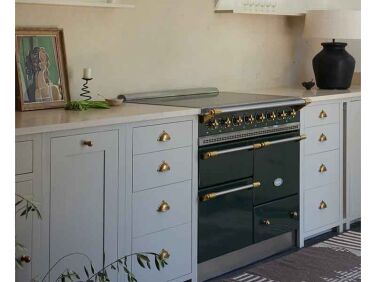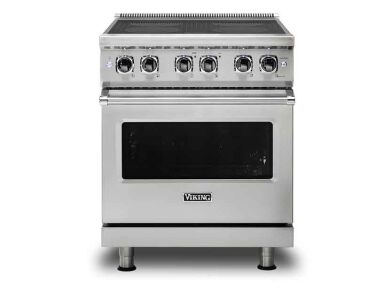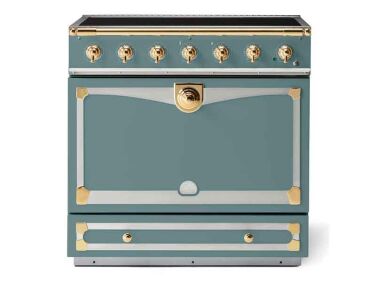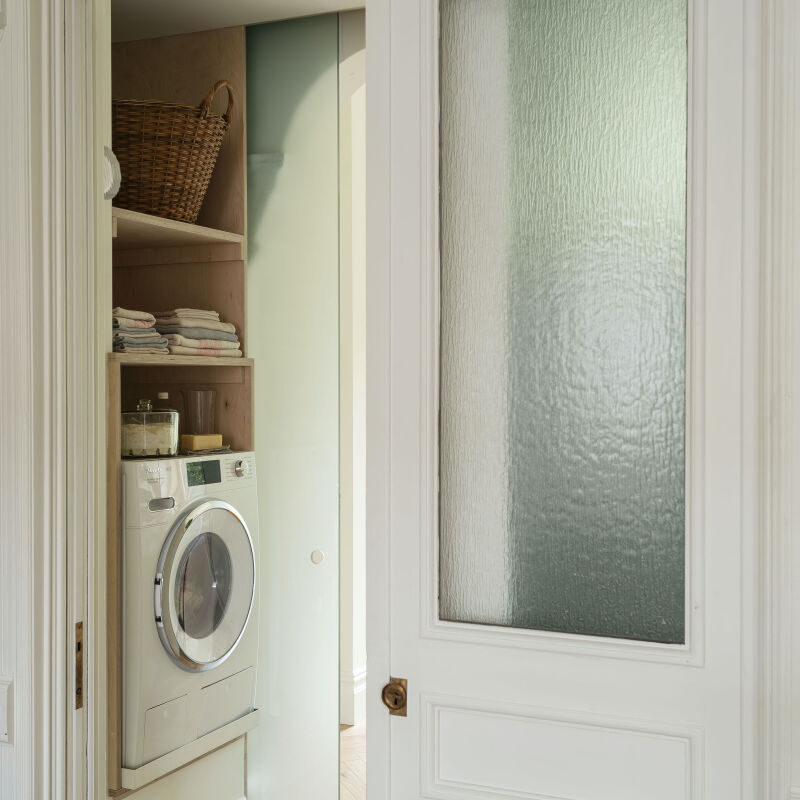Breaking news: My husband, Josh, and I recently took the plunge and switched to an environmentally friendlier induction range. Our 20-year-old gas range lived a full life but was starting to require yearly tinkering (fortunately, our chef neighbors were turning their garage into a second catering kitchen and were happy to take on our gas guzzler). We chose an Aga Elise Series 36-Inch Freestanding Electric Induction Range (I’m a longtime Aga obsessive), and I’m happy to report we both love the functionality, the handsome design, and the improved air quality in the kitchen.
The gas-versus-induction debate—spurred on in the US by city legislation limiting the number of gas hookups in new construction and already in effect in NYC and CA—is no longer debatable. Induction cooktops and ranges, with their precise heat control, environmental friendliness, health benefits, and convenient cleaning is the wave of the future.
Though the benefits of switching to an induction stovetop (which you can read more about here) are obvious, if you’re waffling on the aesthetics, there are now a wide array of traditional-looking free-standing ranges from companies like Viking, Wolf, Aga, Bertazzoni, La Cornue, Ilve, Lacanche (Julianne Moore’s favorite brand), and Smeg.
Here are a dozen of our favorite kitchens featuring induction cooktops and free-standing ranges, all gathered from our archives:












For more on induction ranges, see:
- Remodeling 101: Farewell to the Gas Range, Welcome to the World of Induction Cooking
- 10 Easy Piece: Compact Induction Cooktops/Ranges
- 10 Easy Pieces: Freestanding Induction Ranges
Frequently asked questions
What is an induction cooker?
An induction cooker is a type of stove that uses electromagnetism to heat cookware directly, making it a highly efficient and fast cooking option.
How does an induction cooker work?
Induction cookers generate an alternating magnetic field that creates electric currents in the cookware. This current produces heat, cooking the food quickly and evenly without heating the surface of the cooker.
What are the advantages of using an induction cooker?
Some advantages of induction cookers include faster cooking times, precise temperature control, energy efficiency, safety (cool surface), and easy cleanup due to the absence of open flames.
Can I use any cookware on an induction cooker?
Not all cookware is compatible with induction cookers. To work on induction, pots and pans must be made of magnetic materials like cast iron or stainless steel. Non-magnetic cookware, such as copper or glass, will not work.
Do induction cookers require special installation?
Induction cookers typically require a 220-240V electrical connection, so some homes may need to upgrade their electrical systems. Additionally, it's essential to have proper ventilation to dissipate the heat produced during cooking.
Do induction cookers save energy?
Yes, induction cookers are known for their energy efficiency. They heat up quickly, wasting less energy than traditional gas or electric stoves. Additionally, induction cooking only heats the cookware, not the whole cooking surface, further reducing energy consumption.
Are induction cookers safe to use?
Yes, induction cookers are considered safe to use. They have built-in safety features like auto shut-off when no cookware is detected, and the cooking surface remains cool to the touch, reducing the risk of burns.
Are induction cookers easy to clean?
Yes, induction cookers are easy to clean. Since the cooktop doesn't heat up excessively, spills and boil-overs are less likely to get burnt onto the surface. Most induction cookers have a smooth glass surface, making cleanup as simple as wiping with a damp cloth.
Can I install an induction cooker in any kitchen?
Induction cookers can be installed in most kitchens, but it's important to consider the electrical requirements and available space. Make sure to check the dimensions of the cooker and have a qualified electrician ensure your kitchen can accommodate the necessary electrical connection.
Do induction cookers require special cookware maintenance?
Induction cookers don't require special maintenance for the cookware itself. However, it's recommended to avoid dragging pots and pans across the glass surface to prevent scratching. Also, make sure the cookware's bottom is clean and free from residue to ensure optimal contact with the induction element.
Can I use induction cookers with pressure cookers or canning equipment?
Yes, induction cookers can be used with pressure cookers and canning equipment. However, it's important to ensure that the pressure cooker or canner is induction-compatible, meaning it has a magnetic base for proper heat transfer.
Are induction cookers expensive?
Induction cookers generally tend to be more expensive upfront compared to traditional stoves. However, their energy efficiency and potential long-term savings on utility bills can offset the initial investment.









Have a Question or Comment About This Post?
Join the conversation